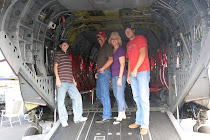The Run-Away Hat
So the other day Lisa and I are enjoying a breezy, open-air bus ride and chit-chatting away when all of a sudden her most beloved ball cap flies off her head. It all happened in slow motion as she looks at me then out the window. I ask her if she wants to stop and get it, she hesitates, I ask again, by this time I can see the importance of this hat beginning to well up in her eyes. I reach over her, grab the string that rings the bell, throw all of my stuff in her lap as the bus comes to a halt, and I tell her to go on, I will take a taxi. Lol.
What a heroic thing to do. Right. So, I am running off the bus with a bouncing backpack attached to my shoulders as people on the bus are yelling, “Vano I vei? Cava?” (Where are you going? What?) I say “Na sala”, meaning “hat”, but it also means “road”. I am not sure if they knew I was running after a hat or running down the road. Man, the Fijian language is too simple. So as I am retracing our tracks I am also yelling at the bus “Vano, kua na wawa!” (Go, don’t wait). They wait anyways. I run down the hill, snatch up the hat about ¼ mile away, then begin to run back up the hill, in flip-flops, as the bus is slowly coasting backwards towards me. As I make a flying leap back onto the bus the people are cheering and clapping as if I just saved a life. It was a sight to see!
E Dua Na Peace Corp’s Vakamau (One Peace Corp’s Wedding)
One of our Peace Corps Volunteers got married to a Fijian man about a week ago! The wedding was traditional with the PCV and husband wearing masi cloth (a plant stem turned into a paper-like cloth). Many people came to wish her the best. After the village wedding, everyone headed over to The Uprising for the after party, where events turned into crazy dancing and lots of laughing. I kicked some butt in pool (billiards), drank some boxed wine (classy huh!?) and enjoyed the weekend with friends!
Vakatulewa
It has been a while. Since my last blog John and I taught a stay in school program to the 7th and 8th grade at a local primary school. It went extremely well. The two teachers who sat in on the program had just a few suggestions that we agreed with and have now incorporated into our two hour session. I was delighted to be told that the information is quite important for the children to hear because they are not given an opportunity at home to discuss different education options, potential careers, or the long-term benefits of making good decisions now, early on. I am pleased that we were asked to come back and speak to the parents at a PTA meeting as well as encouraged to talk to secondary schools as well.
Talking to a successful Fijian businessman the other day also opened my eyes to the struggles of secondary school boys dropping out of school to work in the sugar cane fields. The children’s parents are to blame because these kids are only 12-16 years old, an age in America where children are forced to attend school, whereas here in Fiji, children are sometimes encouraged to drop out so that they can make some quick cash for the family. We see the importance of our program being stressed towards the parents as well, but how to reach the parents and make an impression may become a new challenge.
Beeswax Candle Making
The day after our Vakatulewa program was a success John and Leslie were conducting a beeswax candle making workshop at an Indo-Fijian’s house. I somehow finagled my way into the workshop and gave a few creative ideas of my own. It was really neat to see Indians and Fijians working together. Since I live in an all-Fijian village, I very rarely have to opportunity to enjoy the Indian culture. They had each brought a different Indian dish for lunch so I was also able to try all different authentic South Indian food. Killed two birds with one stone!
Leslie had received grant money through the Peace Corps Partnership Program to order all kinds of candle molds, wick, pots, and bee equipment. This workshop was the first time she was able to use her new candle making supplies. The angels turned out beautiful as well as my staggered bamboo votive idea for tourists. I think the women were really enlightened and excited to start their own creative innovations.
Bamboo
What an awesome plant. It feeds pandas, builds bilibilis (bamboo rafts used for transportation down rivers), transforms homes, and to my recent discovery, makes amazing musical instruments. As John and I were cutting the bamboo for the candles I saw different lengths of bamboo piling up on the ground. I knew there had to be a use for them, and then I remembered all of those visits to the science center with Wil back in Birmingham. At the McWane Center there was a line of different sized metal tubes that were used as a human size organ/xylophone. I picked up the pieces, took off my flip-flop, and poof, a different sound came from each piece of bamboo. I was so excited that I took the bamboo to the candle making and then the ladies started describing other instruments such as guitars, flutes, and harps that can be made from this beautiful plant. My next hobby, a bamboo band in the kindergarten!
All Vol
The new Peace Corps volunteers of Fiji, so named FRE-08, have arrived and soon enough we will have a time to get to know them. I am so excited. In two weeks we will be eating at staff’s homes visiting with 35 new volunteers! We are getting four new volunteers in my area alone! Thank goodness I am close to other Americans, this fact has literally kept me sane.
Why Fijians Don’t Need a Lot of Money
I finally figured it out. Yes, they are subsistence farmers and can grow almost anything they want to eat, and yes, they can raise chickens, cattle, and goats, as well as fish for meat. What I did not understand until just recently is how most of their work is communal without an exchange of money, just favors. This is why they have such a strong kerekere (borrowing, helping) system.
Within our village of about 230 people we have two experienced carpenters, a plumber, an electrician, experienced divers, experienced farmers, musicians, singers, preachers, mat weavers, scientists (very general use of the word), teachers, boat captains, fishermen, livestock farmers, fighters, and government officials. The idea of having everyone in the village specialize in a different expertise enables them to “use” each other without the need to pay any money. There aren’t many things that they need to purchase from town besides flour, sugar, soap, and noodles. It is quite different from America, but at the same time just as efficient. No one is trying to cheat them on how much it will cost to get their boat engine fixed, no one is charged to run a pipe to their shower, everyone pitches in when it is time to build a house, and people get along because they never know when they will need the other person’s skills. I guess I should just compare it to ancient civilizations, before currency was ever exchanged for help.
Why Fijans Say We American’s Have a Lot of Money
Exchange rates, amount of work, education, and industrialized are my top four reasons for receiving this statement on a daily basis.
Exchange rates – About 1 USD = 2 Fijian Dollars. A good salary in Fiji is 15,000 FJD versus a good salary in America would be about 60,000 FJD. So, of course, if a person making a normal living in America decided to up and move to Fiji with money saved up while working in America, they would appear to Fijians as being rich. Although, the point must also be said that a bunch of bananas in an American supermarket might cost you 5 USD versus the same organic bananas sold in Fiji would be 0.50 USD. Let’s also compare a utility bill. On average, each month of electricity might cost you 150 USD, whereas here in Fiji, a typical month would cost you 4 USD. Don’t forget though, you would be exchanging 24 hours of electricity and air conditioning for 2 hours electricity per night from a generator.
So in America, people go to school. They often graduate with honors and continue on to a higher education such as a bachelor degree. In Fiji, probably half the population does not make it through 10th grade. (Hence, the reason we are stressing our new “stay in school” program)
Also, in America, as well as any other developed nation, people work hard, on average, 40 hours a week. I would have to average a work week for Fijians to be about 10 hours. This would consist of men going to their farm or women weaving their mats. So the workload does not really translate into a large salary.
All three of the reasons above could really fit into one category – industrialized/developed. Fiji is a third world country and therefore Fijians have a completely different concept of daily needs than a typical American. I am not saying that one location/lifestyle is better than the other, just different.
Kindergarten in Review
The kindergarten is going great! The children are learning a LOT of English words and songs. They are really enjoying the structured class time. In the past few weeks they have been learning all about themselves. This week they have been focusing on body parts and articles of clothing (in English). Their primary schools are going to be so impressed.
I have also been putting together a “Thank you” book for First Christian Church of Gainesville, Texas. It will be a while before everything is ready, but we still have you in our thoughts and prayers. Each day we go into the kindergarten and use the supplies ya’ll so generously gave to my community and thank God for thoughtful people like ya’ll. Thank you so much for your time and immense help.
The kindy also has a guest speaker on Wednesdays which consists of someone from the village coming in to teach things such as weaving, meke (songs), and the “old” language of our village. We have already learned how to brush our teeth and soon we will be learning how to correctly wash our hands. The Bamboo Band will be coming along soon as well. Plus, an Earth day (great idea given by a nearby Peace Corps volunteer, Lydia) where we will build tire swings, plant seeds and flowers, remodel our sand box, and use recycled materials to make toys. In other words, the kindergarten is keeping me on my toes with new projects.
I have one favor to ask on behalf of the kindergarten. We would really like to have a doctor’s corner, but the hospitals around here are not prepared for patients let alone able to give away used equipment. If anyone comes across a stethoscope or blood pressure band (Neither have to work) please let me know. Thank you for your help!
Virgin Coconut Oil
Again, still waiting on the government for economic support, but the villagers are so keen on learning how to produce VCO that they have asked me to conduct a hands-on workshop, teaching them the process step-by-step. So, next week will be days full of scraping, squeezing, filtering, and sunning. I am so glad the community is eager to learn.
Hear me roar
9 years ago

















